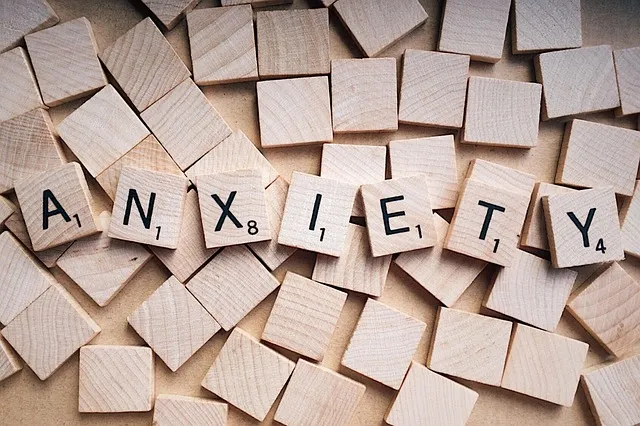Kaiser Permanente's innovative crisis intervention team (CIT) training program in Centennial, focusing on mental health issues, integrates advanced techniques like conflict resolution and compassion cultivation. This comprehensive approach aims to enhance accessibility and effectiveness of CITs, addressing barriers such as stigma. Through immersive workshops, simulations, and continuous support, the program equips healthcare providers with essential skills for managing mental health crises, ensuring culturally sensitive interventions, and promoting open dialogue. This initiative contributes to Kaiser Permanente's goal of improving mental health care in Centennial and beyond, fostering a more compassionate community.
In today’s world, effective crisis intervention is crucial in mental health care. Organizations like Kaiser Permanente play a vital role in equipping their communities with the necessary tools to handle such situations. This article explores three key aspects of crisis intervention team (CIT) training programs: understanding the role and importance of CITs in mental health care, examining Kaiser Permanente’s comprehensive approach, and highlighting essential skills and strategies used by Centennial’s community. By focusing on these areas, we aim to enhance support for individuals facing crises, with a specific emphasis on Kaiser Permanente’s mental health services and the Centennial region.
- Understanding Crisis Intervention Teams: Their Role and Importance in Mental Health Care
- Kaiser Permanente's Approach to Training: A Comprehensive Program for Effective Response
- Essential Skills and Strategies: Equipping Centennial's Community with Crisis Support Tools
Understanding Crisis Intervention Teams: Their Role and Importance in Mental Health Care

Crisis Intervention Teams (CITs) play a pivotal role in mental health care, offering immediate and specialized support during crises. These teams, often composed of healthcare providers, first responders, and community members, are trained to de-escalate high-risk situations and provide short-term interventions. With the increasing emphasis on accessible and effective mental healthcare, CITs have become a vital component in addressing the Kaiser Permanente mental health number Centennial and nationwide.
The importance of these teams lies not only in their ability to resolve acute incidents but also in fostering long-term wellness. Cultural competency training, such as that offered in the Healthcare Provider Cultural Competency Training programs, equips CIT members with the skills to navigate diverse cultural backgrounds and beliefs, ensuring culturally sensitive interventions. Additionally, initiatives like the Mental Wellness Podcast Series Production can enhance public understanding of mental health issues, while Stress Reduction Methods integrated into CIT training promote not just crisis management but also preventive care.
Kaiser Permanente's Approach to Training: A Comprehensive Program for Effective Response

Kaiser Permanente, recognizing the critical need for effective crisis intervention, has developed a comprehensive training program to equip its teams with the skills to handle mental health crises in the community. This program, centered around the Centennial location, goes beyond traditional training by integrating Conflict Resolution Techniques and Compassion Cultivation Practices, addressing not just the symptoms of mental illness but also the underlying stigma that often prevents individuals from seeking help.
The initiative involves immersive workshops, real-life scenario simulations, and ongoing support networks to ensure practitioners are well-prepared. By fostering an environment that encourages open dialogue and empathy, Kaiser Permanente’s approach aims to revolutionize crisis intervention, making services more accessible and compassionate for those facing mental health challenges in the Centennial area and beyond.
Essential Skills and Strategies: Equipping Centennial's Community with Crisis Support Tools

Crisis intervention team training programs are designed to equip Centennial’s community with essential skills and strategies for supporting individuals facing mental health crises. These programs, often facilitated by organizations like Kaiser Permanente, emphasize evidence-based practices that promote early intervention and effective management of situations involving mental illness, substance abuse, or other emergency scenarios. By equipping healthcare providers with cultural competency training, these initiatives foster a more inclusive environment where diverse communities feel supported and understood.
One key aspect of crisis intervention involves recognizing the signs of depression and implementing strategies to prevent escalating symptoms. Mental illness stigma reduction efforts are also integrated into these programs, aiming to promote empathy and understanding among team members and the broader community. Through comprehensive training, Centennial’s crisis intervention teams become better equipped to handle emergent situations, ensuring that individuals in need receive timely and compassionate care, ultimately enhancing the overall well-being of the community, especially those relying on Kaiser Permanente mental health services.
Crisis intervention team (CIT) training programs, as demonstrated by Kaiser Permanente’s comprehensive approach, play a pivotal role in equipping communities like Centennial with essential tools for mental health support. By fostering understanding and enhancing skills, these programs ensure that individuals can effectively navigate and respond to crises, ultimately improving the well-being of their communities. For those seeking immediate assistance, the Kaiser Permanente mental health number serves as a vital resource, further emphasizing the need for widespread CIT training initiatives.






